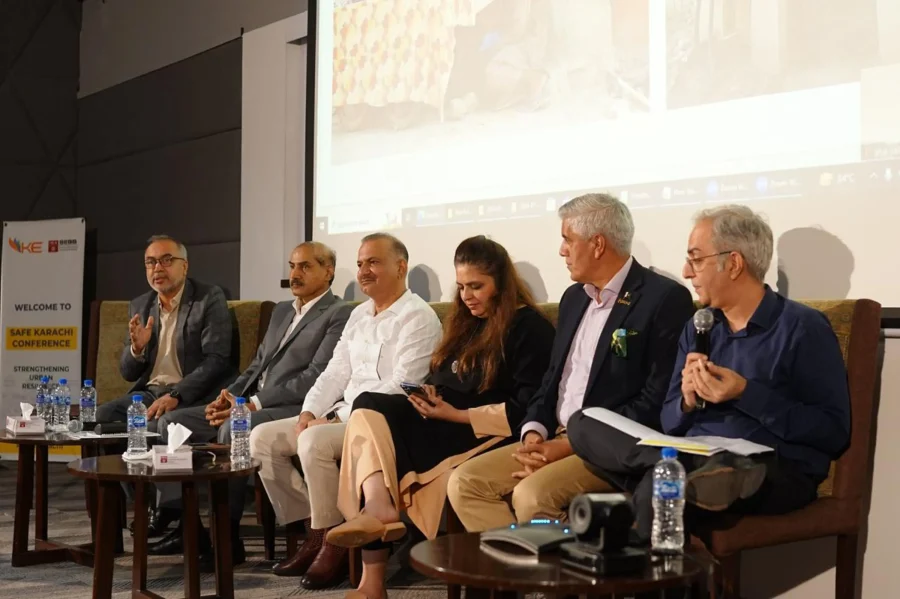A conference titled “Strengthening Karachi’s Urban Resilience” at the Institute of Business Administration (IBA) Karachi tackled the city’s ongoing urban challenges. Despite the development of seven master plans over the years, Karachi’s rapid expansion has consistently outpaced infrastructural improvements, leading to a range of issues including encroachments and the loss of green spaces.
Experts and officials at the conference discussed the need for institutional empowerment and collaborative efforts to address these issues and build a more sustainable and resilient city. Khalid Hyder Shah Ahmed, Additional Secretary to the Chief Secretary, emphasized the increasing financial and administrative empowerment of local governments. He noted that enhanced funding from the Sindh government is crucial for tackling safety hazards such as encroachments. AsifJaanSiddiqui, Project Director of the Competitive and Livable City of Karachi (CLICK), highlighted the necessity for improved monitoring systems and proper city registration to boost tax collection and financial empowerment for local councils. He also praised citizen engagement services like Alertli for their role in identifying and addressing challenges. Sadia Dada, Chief Marketing & Communications Officer at K-Electric, underscored the importance of crowdsourcing to promptly report and address hazards, enhancing community involvement and vigilance. Brigadier (R) Tariq Lakhair, CEO of the 1122 emergency response team, reported that the service handles 20,000 calls daily and emphasized the need for more private and welfare ambulance services to meet growing demands. Dr. Afia Salam, journalist and environmental advocate, stressed the difference between “hot days” and “heatwave conditions,” advocating for better public education on these distinctions to improve climate adaptation strategies. SohaMacktoom from Karachi Urban Labs called for long-term, data-driven solutions, including forestry practices and micro-planning to address urban heat islands. Zubair Ahmed Channa from SWEEP urged a shift in mindset towards collective ownership of the city’s challenges, particularly highlighting the city’s fragile drainage system and its impact on emergency services.
HumayunSaghir from the utility sector mentioned efforts to elevate infrastructure in waterlogged areas to ensure reliable power supply. The conference concluded with a consensus on the critical need for collaboration across public and private sectors to address Karachi’s unique urban challenges, including its expanding population and diverse climate concerns.










